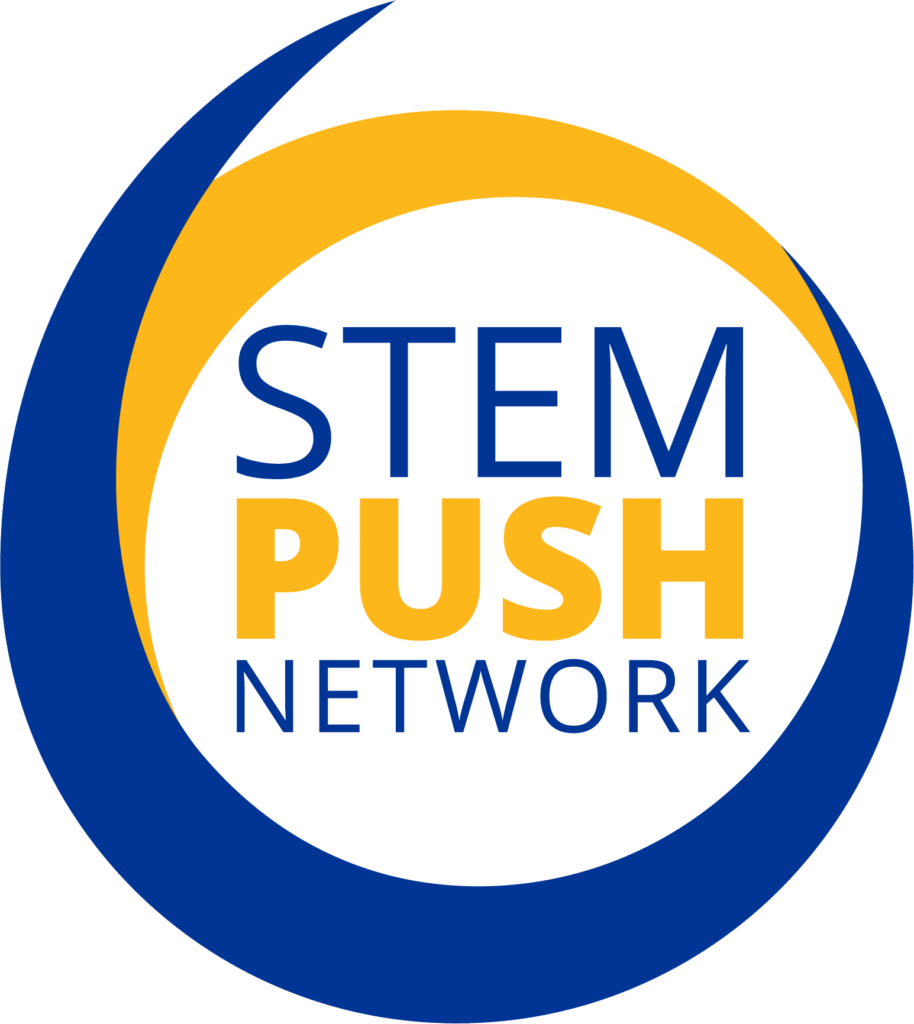Six Pre-College STEM program (PCSP) members of the STEM PUSH Network , a National Science Foundation (NSF) funded research project led by an interdisciplinary team of University of Pittsburgh researchers from The Broadening Equity in STEM Center, are poised to be the first ever out-of-school educational programs accredited by Middle States Association Commissions on Elementary and Secondary Schools (MSA-CESS) for the programs’ ability to broaden participation in STEM.
The certification is a ground-breaking step toward making out-of-school time STEM academic experiences for Black, Latina/o/e, and Indigenous students more visible in the higher education admissions process. STEM PUSH PCSPs are established, intensive, STEM-focused, out-of-school-time programs intentionally serving Black, Latine, Indigenous, and other underrepresented racially minoritized high schoolers through practices that center equity and prepare students for undergraduate STEM. These programs provide more than 100 hours of programming using curricula that are rigorous and reflective of advances in their various STEM fields.
“This is a huge moment to recognize the tremendous thought and effort of our pre-college STEM program staff who not only design and run impressive programs, but additionally engaged in several improvements as part of the STEM PUSH Network leading up to their accreditation process. Accreditation recognizes the continuous improvement of each program, as they consistently provide outstanding academic and social STEM experiences for their high school students,” said Disan Davis, Research Associate and Accreditations lead, for The STEM PUSH Network.
“Collectively for The STEM PUSH Network, accreditation elevates the importance of community-based and culturally sustaining out-of-school academic STEM experiences as meaningful preparation for post-secondary success.”
“We’re pushing back against the gatekeeping that has prevented smart, enthusiastic, Black, Latina/o/e and Indigenous students from realizing their full potential in STEM fields, and in the long run, STEM will benefit from more diverse talents, perspectives, and skills,” she added.
The six programs that made up the first STEM PUSH accreditation cohort worked through a rigorous continuous improvement process that included a self-study documenting improvements, evidence, and future goals, in preparation for site visits with MSA. Site visits have concluded and all six programs are recommended for accreditation.
The programs are: Arthur Ashe Institute for Urban Health’s Health Science Academy, California State University East Bay MESA, Gene Team at University of Pittsburgh, Joaquin Bustoz Math-Science Honors Program at Arizona State University, New York Hall of Science’s Science Career Ladder, and Peggy Notebaert Nature Museum Teenagers Exploring and Explaining Nature and Science (TEENS).
Last year, The University of Pittsburgh’s Broadening Equity in Science, Technology, Engineering and Math Center (BE STEM Center) the anchor organization for the STEM PUSH Network, earned accreditation as a learning services provider from Middle States Association Commissions on Elementary and Secondary Schools (MSA-CESS) in recognition of BE STEM’s adherence to equitable, peer-reviewed standards that promote educational excellence.
In partnership with PCSPs, MSA-CCES, Higher Ed admissions leaders, equity in STEM and STEM learning professionals, The STEM PUSH Network designed the novel accreditation system centered on evidence-based, equity-centered Quality Standards that reflect improvement work done around key objectives and priorities determined by PCSPs and admissions leaders.
Dan Rufo, Senior Associate Vice President for Accreditation at Middle States said The MSA Accreditation of the STEM PUSH Cohort “will allow universities and institutions of higher education see that the programs in the STEM PUSH Network are all meeting the standards for MSA and have undergone a process of self-reflection, planning, and external validation by MSA’s Commissions, that they are consistently working towards their missions and plans for growth of setting the path for equitable admissions.”
MSA will now perform a comprehensive assessment and certify the PSCPs for accreditation, conferring national standard status for the programs. Because out-of-school educational programs experiences are disproportionately important for minoritized students, they must weigh more meaningfully as academic preparation considerations in admissions decisions. Accreditation will ensure that the critical learning and skills development provided by PSCPs is fairly considered in the application process.
The STEM PUSH Network is operated by The Broadening Equity in STEM Center (BE STEM) at the University of Pittsburgh, and originally funded by the Eddie Bernice Johnson INCLUDES program. STEM PUSH is a comprehensive national effort to enhance U.S. leadership in discoveries and innovations by focusing on diversity, inclusion and broadening participation in STEM at scale. STEM PUSH is also co-funded by the NSF Innovative Technology Experiences for Students and Teachers (ITEST) program and the Advancing Informal STEM Learning (AISL) program.
For additional information contact Tim Francisco, timfrancisco@tiesteach.org

